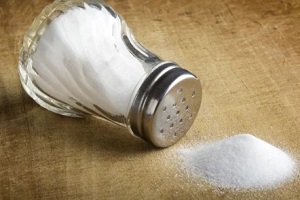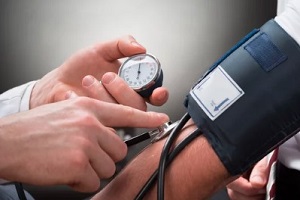 Hypertension, also known as high blood pressure, is a serious health problem that puts you at greater risk for heart attack, stroke, kidney failure, and other issues. The good news is that, with some changes to your lifestyle, you can prevent and control hypertension.
Hypertension, also known as high blood pressure, is a serious health problem that puts you at greater risk for heart attack, stroke, kidney failure, and other issues. The good news is that, with some changes to your lifestyle, you can prevent and control hypertension.
This article will explore ten ways you can maintain optimal blood pressure.
1. Maintain a Healthy Weight
The more extra weight you carry, the higher your blood pressure will tend to climb. This is especially true if you have excess weight around your midsection.
Losing as little as 10 pounds can reduce systolic blood pressure by 5-20 mmHg in those who are overweight or obese. Regular exercise and a balanced diet emphasizing veggies, fruits, and lean proteins are key to reaching and maintaining your healthy weight.
2. Follow a Nutritious Diet
What you eat affects your blood pressure. The DASH diet, or Dietary Approaches to Stop Hypertension, has been shown to be a good approach to lowering high blood pressure. It emphasizes produce, nuts, seeds, beans, fish, poultry, and low-fat dairy while limiting red meat, salt, sugar, and fats.
Potassium helps balance excess sodium and manage blood pressure. Aim for 3,500-5,000 mg of this mineral daily from food sources such as bananas, potatoes, spinach, and yogurt.
3. Exercise Regularly
Sitting around too much contributes to hypertension. Regular physical activity is extremely important; aim for at least 2.5 hours or 150 minutes per week of moderately intense activity, such as brisk walking, which can be broken up into multiple stints of 30 minutes.
For even greater effects, strive for 75 minutes of more vigorous training such as swimming or jogging. Along with aerobic activity, do strength training twice weekly. Yoga, lifting weights, and bodyweight exercises can all strengthen your muscles and help control blood pressure.
4. Limit Alcohol
 Drinking too much alcohol raises blood pressure substantially, so moderation is key. Limit yourself to a maximum of one drink daily for women and two drinks for men, where one drink means either 12 ounces of beer, 5 ounces of wine, or 1.5 ounces of distilled spirits.
Drinking too much alcohol raises blood pressure substantially, so moderation is key. Limit yourself to a maximum of one drink daily for women and two drinks for men, where one drink means either 12 ounces of beer, 5 ounces of wine, or 1.5 ounces of distilled spirits.
Binge drinking is especially problematic, as it can dramatically spike your blood pressure, but the effect is temporary. Regularly consuming more than moderate amounts of alcohol leads to sustained hypertension.
5. Manage Stress
Chronic stress causes your body to produce adrenaline, cortisol, and other similar stress hormones. In small doses, this is normal, but over time, elevated stress hormones constrict blood vessels and accelerate heart rate, increasing blood pressure.
Making time to relax is essential; even 10 minutes per day of deep breathing, meditation, or laughter therapy promotes lower blood pressure. Also, carve out time for hobbies and fun activities that take your mind off daily worries.
6. Quit Smoking
Here’s great motivation to stop smoking; doing so will quickly lower your blood pressure, sometimes dramatically. The chemicals in cigarettes damage your blood vessel walls and cause your heart to pump harder, boosting blood pressure.
Smoking also reduces HDL cholesterol and increases blood clotting tendency. Kicking the habit improves blood flow, lowers cardiovascular disease risk, and supports healthy blood pressure.
7. Reduce Sodium Intake
 Eating too much sodium is a primary driver of hypertension. Foods from restaurants that are prepackaged and processed are big sodium offenders. Get serious about reading nutrition labels and excluding high-sodium items from your diet.
Eating too much sodium is a primary driver of hypertension. Foods from restaurants that are prepackaged and processed are big sodium offenders. Get serious about reading nutrition labels and excluding high-sodium items from your diet.
Avoid adding more salt when you’re cooking or having your meal. Stick to the American Heart Association’s recommendation of less than 2,300 mg of sodium daily, ideally limited to around 1,500 mg. Potassium-rich foods can counterbalance the effects of sodium.
8. Get Enough Sleep
Not getting seven to eight hours of quality sleep every night can negatively impact blood pressure regulation. Poor sleep or untreated sleep disorders, such as sleep apnea, strain your cardiovascular system, which operates best with adequate rest.
Healthy sleep habits go a long way, so maintain a consistent bedtime, limit blue light exposure in the evenings, avoid caffeine late in the day, keep your bedroom comfortable, and commit to unplugging before bed.
9. Monitor Your Blood Pressure
Checking your blood pressure regularly, whether at the doctor’s office or using an at-home monitor, is essential for tracking hypertension. That way, you can catch any numbers creeping up before it becomes a serious concern.
How often to check depends on your starting point, at least every two years if you’re in the healthy range or more frequently if your readings are borderline or high.
Let Imperial Center Family Medicine Guide You to Healthier Blood Pressure
 Hypertension is largely preventable when you make lifestyle changes and monitor your blood pressure consistently. Don’t create a situation where you’re overwhelmed by trying to do everything at once, though. Focus on one or two healthy habit goals at a time, then maintain them as you tackle the next.
Hypertension is largely preventable when you make lifestyle changes and monitor your blood pressure consistently. Don’t create a situation where you’re overwhelmed by trying to do everything at once, though. Focus on one or two healthy habit goals at a time, then maintain them as you tackle the next.
For instance, start by cooking low-sodium versions of your favorite recipes. Once that’s a habit, add a 10-minute walk after dinner each night. Build momentum with small, sustainable additions.
If it all seems overwhelming, Imperial Center Family Medicine can help.
Our team has extensive experience in hypertension prevention and treatment and will partner with you for the long term, offering guidance tailored to your unique health needs. Contact us today at 919-873-4437 or online, and let us help you lower your chances of developing hypertension.
